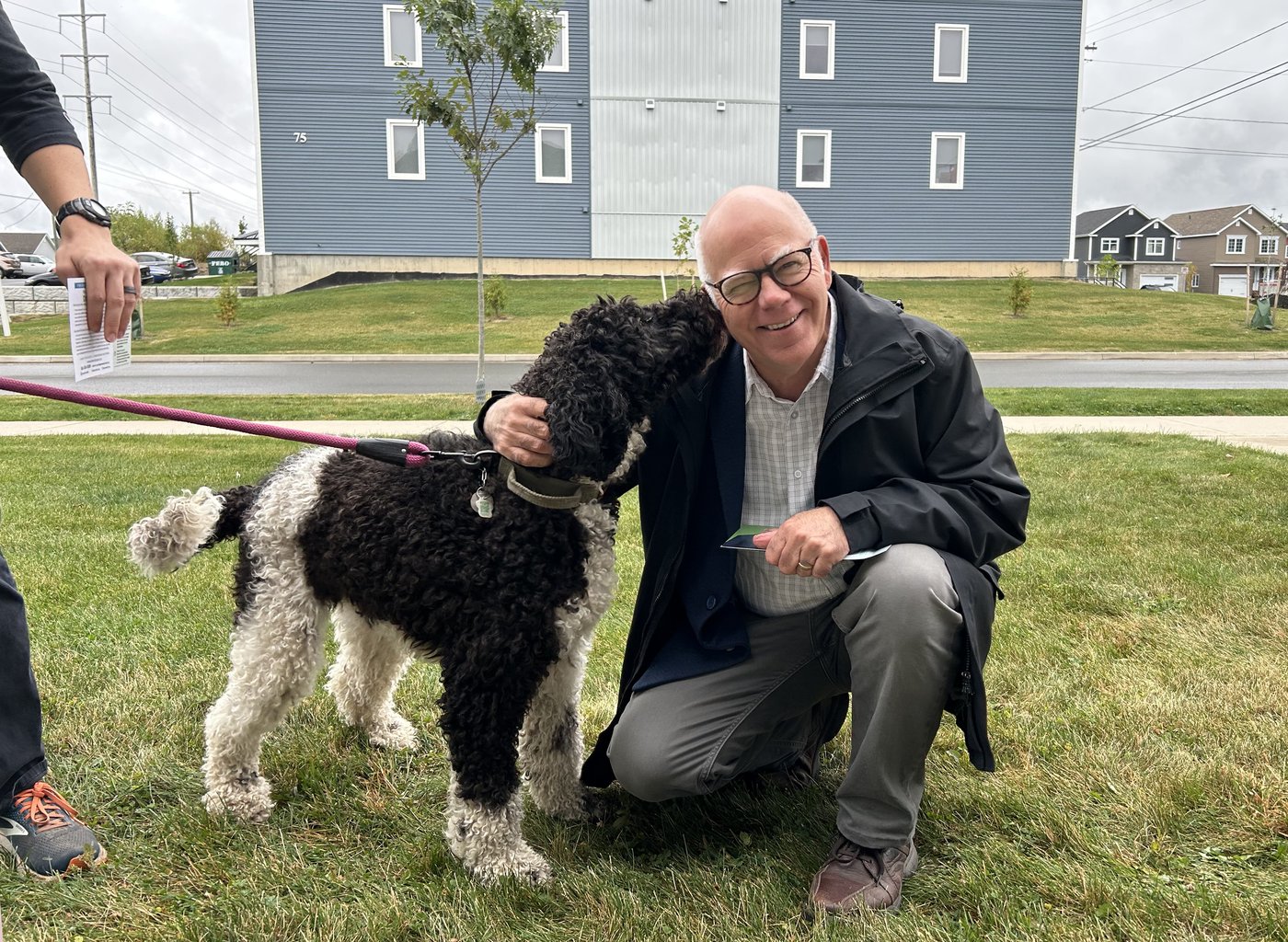FREDERICTON — David Coon is in his fourth election campaign as leader of New Brunswick’s Green Party, but he says this race feels different.
With polls showing the incumbent Progressive Conservatives and Liberals locked in a tight battle, Coon is well aware his party could end up with unprecedented clout if the vote on Oct. 21 ends with a minority government.
Still, Coon remains cautious about his position in the electoral spotlight.
“My focus right now is to form government, and that’s what our campaign is focused on,” the former environmental activist said in a recent interview after canvassing in his riding of Fredericton-Lincoln.
“Anything can happen during an election campaign. We saw parties in the past go from third place to form government because of a change during the election campaign.”
At dissolution, the Progressive Conservatives held 25 seats in the 49-seat legislature. The Liberals held 16 seats, the Greens had three, there was one Independent and there were four vacancies.
J.P. Lewis, a political science professor at the University of New Brunswick in Saint John, said Coon is getting more attention than the leader of a small party usually would.
“Coon has always played an outsized role,” Lewis said in an interview. “But as much as they’re on the cusp of possibly playing this kingmaker role, he needs to win a seat …. These ridings have been redrawn and that’s made that seat more competitive than it was previously.”
Since the beginning of the campaign on Sept. 19, Progressive Conservative Leader Blaine Higgs has warned voters that if the Tories win a minority of the seats, the Greens could forge an alliance with Susan Holt’s Liberals and assume power.
Higgs, who is seeking his third term as premier, likened such an arrangement to the now-defunct partnership between the federal Liberals led by Justin Trudeau and the New Democrats led by Jagmeet Singh.
“We cannot let Susan Holt and David Coon do to New Brunswick what Trudeau and Singh have done to Canada,” Higgs said minutes after calling the election. He did not elaborate.
But Coon remains unfazed by the comparison.
“Jagmeet Singh is an honourable federal politician and is well respected, but I’m my own man,” he said. “It didn’t even occur to me that there was any comparison.”
As well, Coon dismissed speculation that he is drawing up a list of demands for a possible alliance with the provincial Liberals.
“(Higgs) made that up. That came from his brain, or maybe Steve Outhouse’s brain,” he said, referring to the Tory campaign manager.
“There’s nothing like that going on. It’s consistent with (Higgs’s) … fearmongering and rage-farming to get people worked up over things that aren’t true. This is just another example of his effort to get people upset over something that doesn’t exist.”
Coon, however, has said he has a list of “measures” he will seek in exchange for his party’s support if the election results in a minority government. He told the CBC earlier in September, “Should we hold the balance of power after the election, there is a list of measures that we would insist on seeing implemented but I’m not going to share that list.”
While the Greens and Liberals have a number of campaign promises in common, such as implementing a rent cap, Coon said his party has a long slate of other issues to focus on. That includes what he considers to be the most important issues facing New Brunswickers: health care, affordable housing and climate change.
“We want to implement what’s in our election platform,” he said. “That’s the goal. I think I’m an open book.”
In the 2018 election, the incumbent Liberals tried to hold onto power even though they had won one less seat in the legislature than the Tories. At the time, Coon said his party was willing to negotiate some kind of arrangement with either the Liberals or the Tories.
But the three Green members of the legislature eventually decided not to align themselves with either party. And on Nov. 2, 2018 — more than a month after the election — the Conservatives and the People’s Alliance party combined to defeat Premier Brian Gallant’s Liberal minority government in the legislature.
When Higgs was sworn in as premier a week later, the three members of the People’s Alliance had committed to supporting the Tory government on votes of confidence for at least 18 months, but they did not sign any formal agreement. Higgs won a majority government in 2020.
Lewis said that with three weeks left in the 2024 campaign, anything can happen.
“With the polling data, I don’t think it gives us a good sense of where the race is at,” he said. “We can assume it’s relatively close … and the Green Party is in an interesting spot.”
This report by The Canadian Press was first published Sept. 28, 2024.
Hina Alam, The Canadian Press







